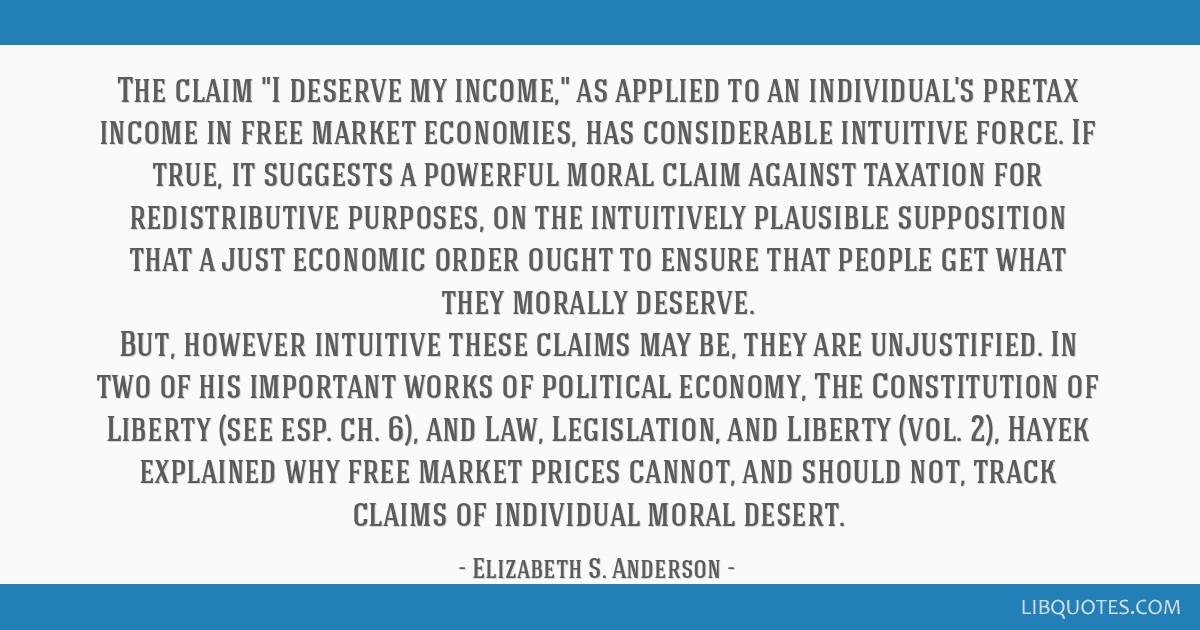The claim "I deserve my income," as applied to an individual's pretax income in free market economies, has considerable intuitive force. If true, it suggests a powerful moral claim against taxation for redistributive purposes, on the intuitively plausible supposition that a just economic order ought to ensure that people get what they morally deserve.
But, however intuitive these claims may be, they are unjustified. In two of his important works of political economy, The Constitution of Liberty, and Law, Legislation, and Liberty, Hayek explained why free market prices cannot, and should not, track claims of individual moral desert.
How Not to Complain About Taxes (III): "I deserve my pretax income" (January 26, 2005)























